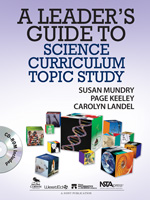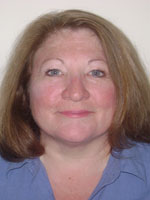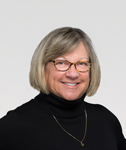Preface
Acknowledgments
About the Authors
1. Introduction to A Leader's Guide
Advice for Using This Leader's Guide
Underlying Beliefs
The Need for a Common Professional Knowledge Base
CTS Makes the Knowledge Base Accessible
Building Professional Community
Observations and Voices From the Field
Professional Development Designs Are Enhanced Through CTS
CTS Use by Collaborative School Teams
CTS Use in Preservice Education
CTS Enhances Science Education Leadership
The Language of CTS
2. Introduction to Curriculum Topic Study for Leaders
What Is CTS?
What CTS Is Not
CTS and Science Literacy
Key Points About Standards and Research on Learning
Using CTS to Lead Professional Learning
CTS Resources and Tools
From Generic Tools to Content-Specific Tools
3. Considerations for Designing and Leading Curriculum Topic Study
CTS and the Principles of Effective Professional Development
CTS Learning Cycle
Facilitation Tips and Strategies
Acquiring and Managing Materials
Developing Norms for Collaborative Work
CTS Group Norms
Options for Organizing and Discussing Readings
CTS Recommended Reading and Summarizing Strategies
Reporting Out Strategies
Reflection on CTS
Summarizing Findings
Strategy for Addressing the Issue of Time and Difficulty
Next Steps
4. Tools, Resources, and Designs for Leading Introductory Sessions on Curriculum Topic Study
Make Your Own CTS Introductory Session
Essential Facilitator Preparation
Module A1: Introduction to CTS Using K-12 Snapshots, Facilitation Guide
Module A2: Introduction to CTS Resource Scenarios?Models, Facilitation Guide
Module A3: Full-Day Introduction to CTS Resource Scenarios and Snapshots, Facilitation Guide
Options for Introducing the CTS Resource Books
Developing Your Own Snapshots and Resource Scenarios
Next Steps After CTS Introductions
5. Leading Full Topic Studies
Introduction to Full Topic Studies
Module B1: "Experimental Design" Facilitation Guide
Module B2: "Evidence and Explanation" Facilitation Guide
Module B3: "Earth, Moon, and Sun System" Facilitation Guide
Module B4: "Conservation of Matter" Facilitation Guide
Module B5: "Atoms and Molecules" Facilitation Guide
Module B6: "Photosynthesis and Respiration" Facilitation Guide
Module B7: "Life Cycles (K-4)" Facilitation Guide
Additional Suggestions for Designing and Leading Full Topic Studies
Developing Your Own Half-Day Topic Study
Combining Topics
Cautions and Next Steps
6. Using CTS in a Content, Curricular, Instructional, or Assessment Context
Introduction to CTS Context Applications
CTS and Science Content Knowledge
CTS and Science Curriculum
CTS and Science Instructions
CTS and Science Assessment
Module: Developing CTS Assessment Probes
Performance Assessment Tasks
CTS Performance Assessment Task Design and Teacher Learning
A CTS Process for Developing Performance Tasks
CTS Performance Task Development Tools
Introducing the CTS Performance Assessment Task Application
Developing Their Own Performance Task
Other Examples of Context Applications of CTS
7. Embedding CTS Within Professional Development Strategies
Why Use CTS Within Other Professional Development Strategies?
CTS and Professional Learning Communities
CTS Professional Development Strategy Application 1: Study Groups
CTS Professional Development Strategy Application 2: Collaborative Inquiry Into Examining Student Thinking (CIEST)
CTS Professional Development Strategy Application 3: CTS Video Demonstration Lesson (VDL)
CTS Professional Development Strategy Application 4: CTS Integrated Lesson Study
CTS Professional Development Strategy Application 5: CTS Action Research
CTS Professional Development Strategy Application 6: CTS Seminars
CTS Professional Development Strategy Application 7: CTS Mentoring and Coaching
A Final Word
References
Index





